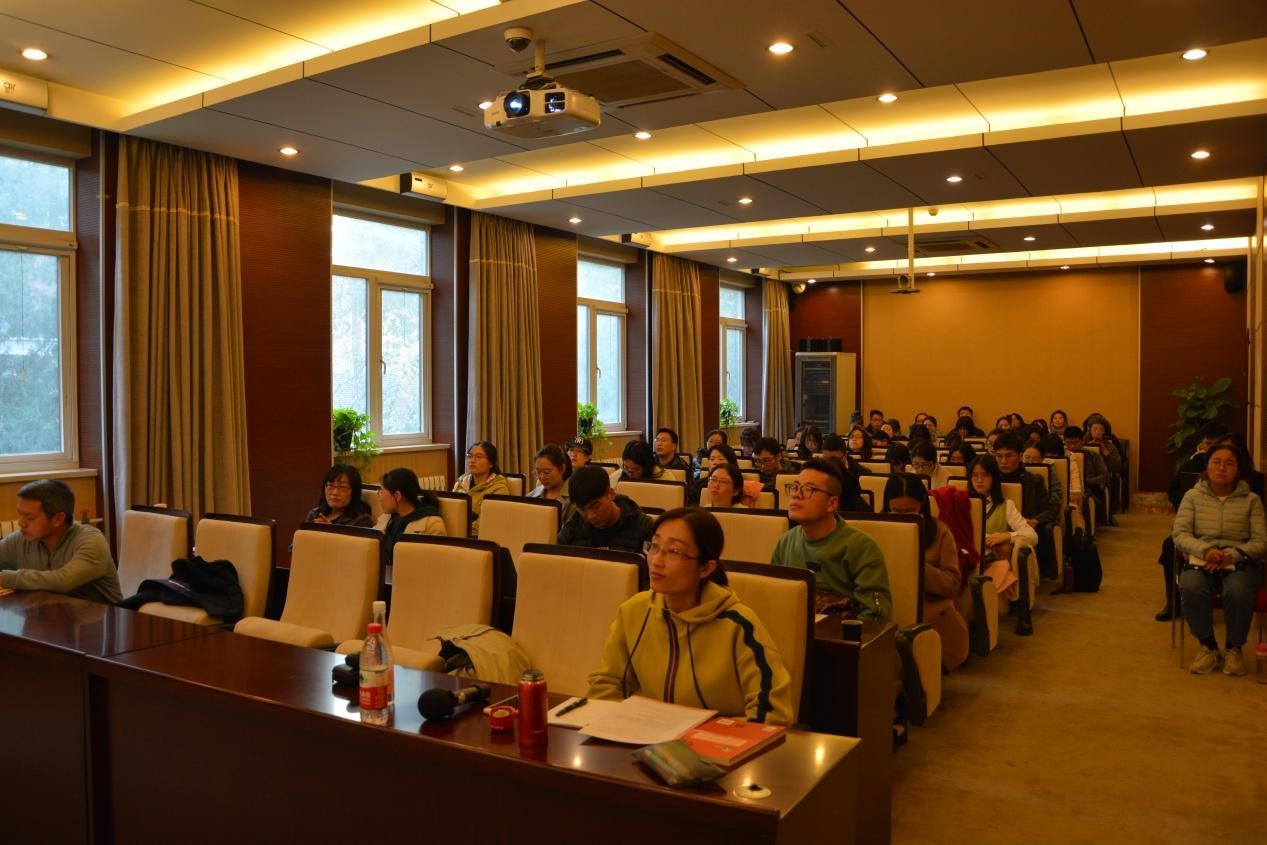How to Argue

The lecture “How to Argue” was held in the SFS building, Room 315 on the afternoon of November 14, 2019. This lecture was given by Prof. Xiong Minghui from Sun Yat-Sen University (SYSU), who is the vice-director of a key research base for humanities and social sciences of the Ministry of Education—the Institute of Logic and Cognition at SYSU, and doctoral supervisor of Logic in Philosophy Department of SYSU, Jurisprudence in Law School of SYSU, and artificial intelligence and law in the Department of Artificial Intelligence of University of Groningen. He Zhongqing, director of Department of English Graduate Students of the SFS in USTB, Man Haixia, the head of the MTI Center, and other faculty members, as well as more than 70 doctoral and postgraduate students participated in the lecture.

First, Prof. Xiong Minghui stated that argument does not merely exist in formal and standardized judicial and parliamentary debates. It exists everywhere in daily life such as letters to news newspaper editors, discussions at work and discussions on family decisions. He also mentioned that Tsinghua University would start from 2019 and offer a school-wide compulsory course of “Writing & Communication” for its undergraduate freshmen, aiming at enabling students to fully apply the argument to their writing by understanding the argument process and learning argument skills, so as to improve their academic writing.
Prof. Xiong Minghui started from the classic book, A Rulebook for Arguments and talked the updating and iteration of the argument content and structure from the first edition in 1987 to the fifth edition in 2017. He explained “how to argue” in detail from four aspects—basic literature review, evolution of rule framework, specific rule changes and common fallacy types.
The first principle of argument was to review the premises and check the conclusions. The premises should be trustworthy, the ideas should be specific and clear in a natural order. People should use consistent terminology, and base the views on substance rather than radical speech. From the perspective of Argument by Example, the argument should be evaluated in advance, using multiple representative examples. Researchers should be cautious about statistics, and be able to foresee counterexamples. If Argument by Analogy was used, they needed to use relevant and similar examples. In Argument from Authority, informative and unbiased sources were critical, and cross-checking of the sources was necessary to build Internet savvy. In Deductive Argument, modus ponens, modus tollens, hypothetical syllogism, disjunctive syllogism, dilemma, reductio ad absyrdum and deductive arguments in multiple steps are very important. In the expansion of argument, it was necessary to defend the basic premise of argument, meet opposition and explore substitutability. For example, the well-known writer Feng Tang created his thoughts and ideas in the form of argument, which rendered the content reasonable and accessible., Therefore, his novels were widely praised by the readers.
In addition, Prof. Xiong Minghui combined postgraduate academic writing with argument skills, and made suggestions for argumentative writing. A strong argument consists of firstly a straightforward and concise thesis, and secondly a clear proposition and proposal. Whether the outline can be easily captured, the paper can be summarized within half an hour, or the idea can be stated logically are effective methods to test the quality of argument. Thirdly, it was necessary to dwell on objections and find a way to deal with them, and collect feedback and use it effectively. Finally, a modest and studious attitude in studies and writing papers was an indispensable academic quality for graduate students.
At last, Prof. Xiong Minghui recommended the official WeChat account of “Critical and Creative Thinking”, A Course in Critical Thinking, and Handbook of Argumentation Theory and other resources to students, and enthusiastically answered students’ relevant questions. All the students on site had gained and benefited a lot. The lecture was a great success.
